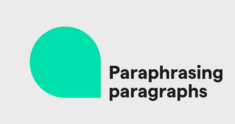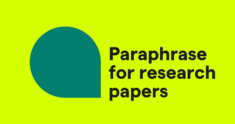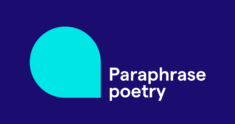
Whether you sprained an ankle playing pickleball or experienced something more serious and had to go to the hospital, it’s never fun to feel unwell.
During these times, receiving a “get well soon” message from a friend, colleague, or family member can help. There’s nothing quite as sweet as getting a positive, heartfelt note.
Happily, we’re here to help you write a message centered on well wishes for good health and healing.
What is a “get well soon” message?
A “get well soon” message is a supportive note that you send to someone who is unwell, recovering, or struggling with a personal challenge. It can be a handwritten letter or simple email; the purpose is to convey your well wishes and let the recipient know you are thinking of them.
“Get well soon” messages are intended to cheer someone up and show them that you care about their well-being. They can be funny, serious, heartfelt, or professional, but the underlying tone should be one of empathy and encouragement.
Depending on your relationship, “get well soon” messages can range from brief notes to personalized missives. They can be sent through cards, emails, text messages, or social media channels. You can also attach them to a thoughtful gift, like a fruit basket, flowers, or a baked treat.
When to send a “get well soon” message
The timing of your “get well soon” card should reflect your support and concern for what the person is going through. If you can send a message as soon as the event happens—like news of a diagnosis, injury, or health hardship, it will be appreciated. But sending the message at any stage in the recipient’s illness will let the person know you’re rooting for them.
Here are some times when “get well soon” messages are especially appropriate:
- When you learn of a person’s illness (or the illness of someone who is close to them)
- During a hospitalization
- After surgery or a medical procedure
- When you know a person is feeling sad or going through a difficult time
- During a long-term recovery
It’s also important to be tactful and genuine when writing your message, which means you may want to avoid the following:
- Using clichés
- Downplaying the situation
- Comparing the person’s experience to your own
- Pitying language (such as “I feel so sorry for you”)
- Making assumptions about their recovery timeline or outcome (such as “You’ll be better in a few weeks”)
Types of “get well soon” messages, with 15 examples
Who are you trying to cheer up with your message? If you’re sending this note to your colleague from work, you should keep things professional. If it’s going to a close friend, however, you can personalize it and even infuse it with some humor.
Here are several types of “get well soon” messages based on the tone you’re hoping to achieve:
Thoughtful
1 Your courage, strength, and positive attitude—not to mention your network of friends and family—will see you through this tough time. Know I’m beside you every step of the way.
2 Sending a note to let you know I’m thinking about you and hope you feel better very soon. I’m ready with takeout, a movie night, or an open ear whenever you are.
3 Better days are on their way. Stay strong and get better soon; I’m here if you need me.
4 I know you’re facing a really tough time right now, and it may seem that things won’t get better. But I know they will. Take things one day at a time, and we’ll move through this together.
Professional
5 We’re wishing you a speedy recovery. We’re all looking forward to having you back—work just isn’t the same without you!
6 I hope you’re taking care of yourself and feel better soon. Know our whole team is here to support you in any way that we can.
7 Sending you strength and healing vibes. We miss you and can’t wait to have you back, when you’re ready.
Funny
8 It looks like somebody forgot to eat an apple a day to keep the doctor away. Here’s to a fast recovery!
9 Being sick is just the universe’s way of telling you that you’re way too amazing and you need to slow down so the rest of us can catch up.
10 Since you’ve been gone, we’ve realized how much you actually do around here. Please get better soon; we can’t wait to see you.
11 Hope you feel better soon, or else I’ll have to resort to duct tape. It can fix anything, right?
12 I broke my pinkie and thought my world was ending—how are you so resilient? I want to be more like you. Please get better soon.
Serious illness/injury
13 I’m sorry you’re going through this—my heart and thoughts are with you. Please know I’m sending all of my positive energy for a full recovery.
14 I don’t pretend to know what it takes to recover from an injury like this, but I do know you, and I know your reserves of strength and patience will see you through this—along with the support of your loved ones.
15 The news of your diagnosis hit me hard; please know you aren’t alone. We’re all here for you to lean on—we’ve got you.
“Get well soon” message FAQs
What is a “get well soon” message?
A “get well soon” message is a supportive note that you send to someone who is unwell, recovering, or struggling with a personal challenge. It is intended to boost their spirits and show your support.
When should you send a “get well soon” message?
It’s best to send a “get well soon” message as soon as you learn about someone’s hardship, but it is appropriate at any stage of a difficult time.
What are some different kinds of “get well soon” messages?
Depending on the relationship you have with the recipient, there are different kinds of “get well soon” messages, such as thoughtful, funny, professional, motivational, or religious/spiritual.






